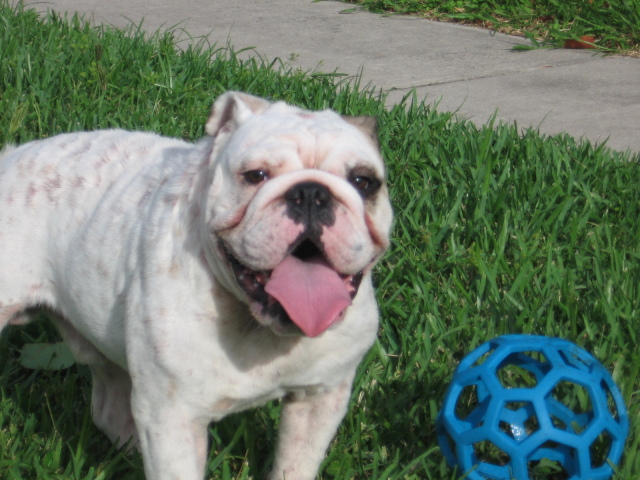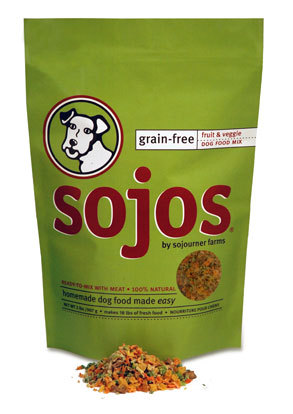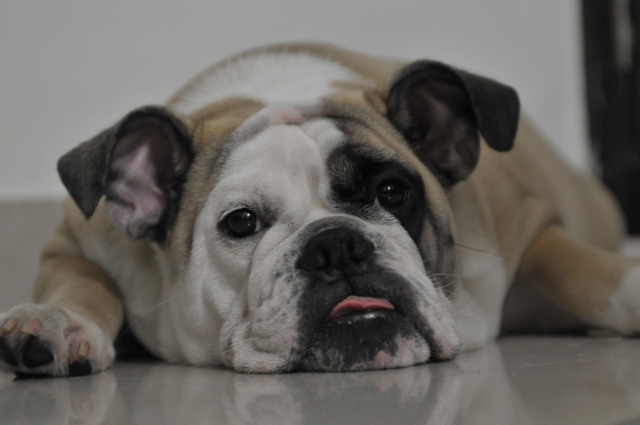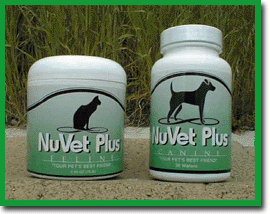QuestionQUESTION: I have a 2 year old male dascchund. He has a very bad "dogggy" odor. It seems to be coming from the glands on his neck.He loves to rub his neck on the carpet and this is when I can smell the odor the worst. Is there anything that I can feed him to reduce the secretion from his glands or to cause the secretions not smell so bad?
ANSWER: Hello Haley,
Dogs who are fed a wholesome diet should not smell under normal circumstances - is it possible he has a yeast problem? What does he eat (main diet, treats?) Does he have issues with his years, anal glands or any itchiness in general? If his diet is fine, I'm wondering if a veterinary check might be in order. But first, I'd like to know more about him - what he eats, any other conditions. This will help me see if there might be a dietary connection.
Catherine
---------- FOLLOW-UP ----------
QUESTION: Usually Brutus eats Purina dog food. Occasionally, he gets Beggin Strips for a treat and on occasion he gets table scraps. Do you suggest I try a different type of dog food? I did check to see if the odor may be coming from his ears and it does not seem to be. However, he does have big floppy ears that he likes to shake alot. Thank you for your help!
AnswerHaley, I would definitely change the food and see if you notice improvement. I think I posted this before - it's a few lines from one of my seminar handouts - but it's worth reposting here if it will help you select a good brand.
from my October seminar handout:
Here is how I start looking at a food, and I would encourage you to try these methods too.
1. Check through the list for any of the really undesirables - corn gluten meal, brewer's rice, BHA/BHT, anything unidentified eg "animal fat" or "meat". The presence of one or more of these should rule that food right out, right away.
2. Evaluate the main ingredients, which are anything listed before the first fat source (not the first five, as is commonly thought). You need to evaluate the quality of these ingredients and this can take some time to learn how this works. Briefly put, you want to look for;
- whole meat sources, specifically identified - lamb, duck, salmon, turkey, not by- products or digest, or generic things like "poultry"
- specifically identified meat meal is fine, it simply means that the meat has had water removed and does not speak to meat quality per se, only weight of this ingredient
- foods that list for example, "lamb meal" as a first ingredient may actually contain more meat protein than one that simply says "lamb" since meal is more concentrated with water removed
- specifically named fats and oil sources - chicken fat, sunflower oil as opposed to "animal fat" or "vegetable oil"
- an Omega 6:3 ratio of anywhere from 7:1 to 5:1 - but you can always add more fish oils if the ratio is the only thing you don't like about a food
- carbohydrates are not all evil as some suspect, but the type, amount and quality will all be important considerations in choosing a food. Look for lower or non gluten grains like rice and
seeds such as quinoa and amaranth, also white and sweet potato as healthier alternatives to
wheat, oats, barley and sorghum. You want whole unprocessed grain as much as possible since
processing removes a lot of nutrient value. Grain should not be a main protein source as amino
acids from grain are of a much lower biological value for the carnivore..and this will mean that the
amount of crude protein stated on the label may well be much lower in the dog's system, resulting
in less than optimal nutrition.
-appropriate nutrient content for your individual dog - is your dog arthritic? Best to avoid white
potato. Do you have a Giant breed puppy? There are excellent new foods that are formulated with
what we currently know about minerals, fats and energy for these unique dogs. And so on.
- Avoid corn, corn gluten, middlings, or any type thereof or wheat, soy or sorghum as main
ingredient - ditto for soy
These are a few important guidelines, to help you choose a diet or several types to use as staple foods, not intended to be comprehensive here, but a list of basic ideas.
Next -watch your dog's reaction! This is common sense, but monitoring the subjective signs of a food's impact on your individual is crucial. Your dog should enjoy the food, stools should be normal in size and frequency and there should be no signs of gastric upset such as flatulence or gurgling. Of course it's important to introduce new foods slowly but after a few weeks you should see postive changes in your dog when shifting from a medium or poor quality food to a truly healthy premium.
Now - some brands I might look at include Canidae - All Life Stages is excellent - Fromm Four Star, Natural Balance, Solid Gold, Innova, Flint River, Timberwolf Organics, or Wellness. Be sure to transitions slowly as all of these foods are much higher quality than anything from Purina - Beneful is one of the worst foods I've seen - so if you just go straight to a premium, your dog may have some loose stool. Remember, too, that dachsunds are prone to weight gain and spinal problems, so it's extra important not to overfeed.
I want to be clear that I can't say for sure this odour problem is food-related, but that I CAN assure you, switching to a premium brand will be absolutely in your dog's interest. It's possible he has a hypersensitivity to one of the cheaper ingredients in Purina, and it's also possible that he will still react to a premium food. If it is an allergy, your best bet is home made. But let's cross that bridge when and if we get there - for now, please do try another food and let me know how he does. If the odour persists, or if other symptoms arise such as goopy ears or paw licking, you almost certainly have a food allergy and then it's a matter of some detective work to find out what it is.
Hope this helps! Catherine

 weight gains
QuestionI have a litter of five month old bluepit bulld
weight gains
QuestionI have a litter of five month old bluepit bulld
 Dog food to prevent Struvite Bladder Stones
QuestionHello,
My 2 year old, female ShihTzu just had
Dog food to prevent Struvite Bladder Stones
QuestionHello,
My 2 year old, female ShihTzu just had
 English Bulldog Food Allergies
QuestionHi,
Our English Bulldog was on Blue Buffalo Chi
English Bulldog Food Allergies
QuestionHi,
Our English Bulldog was on Blue Buffalo Chi
 Salmon oil vitamin supplements
QuestionQUESTION: I have 3 dogs...50lb mutt, 80lb gsd a
Salmon oil vitamin supplements
QuestionQUESTION: I have 3 dogs...50lb mutt, 80lb gsd a
 Shih-tzu with UTI; struvites; crystals in urine; SoJo natural dog food diet;
QuestionQUESTION: Hi. I am hoping you can help me
Shih-tzu with UTI; struvites; crystals in urine; SoJo natural dog food diet;
QuestionQUESTION: Hi. I am hoping you can help me